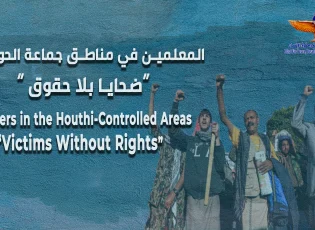In the presence of representatives, representatives of the National Council for Women and civil society organizations ... Maat holds the first community dialogue sessions to discuss Egypt's recommendations
Maat Foundation for Peace, Development and Human Rights held the first community dialogue sessions entitled “Combating violence against women and working to empower them,” within the framework of the initiative launched by the Foundation to hold a number of dialogue sessions in the governorates of the Republic to discuss the recommendations made to Egypt within the framework of the universal periodic review process, and to evaluate The extent of the progress made by the Egyptian government to implement its international commitment.
This session, which was attended by a representative of Parliament and the National Council for Women, and a number of civil society representatives and journalists, aimed to discuss the recommendations accepted by the Egyptian government to promote women's rights, work to empower them and combat violence against them.
Ayman Aqil, head of Maat Foundation, stated that these sessions aim to come up with a number of recommendations and ideas that can be built upon in preparing the report, which will be presented in the name of the Egyptian Alliance for the UPR, to the Human Rights Council in March 2019.
For her part, Representative Mona Mounir confirmed: Member of Parliament said that Parliament has issued a number of legislations that work to promote women's rights, such as the inheritance law and the harsher punishment for circumcision, and it is in the process of discussing a number of other draft laws such as personal status and violence against women, and the criminalization of early marriage.
Nabil Samuel confirmed; The representative of the National Council for Women said that the past four years witnessed the executive authority taking several steps to improve the conditions of Egyptian women, starting with the 2014 constitution that did justice to women. A national strategy was also developed to empower it, and 2017 was chosen as the year for women, and the current parliament witnessed the largest representation of women, in addition to a quarter of the cabinet members being women, with 8 ministers, and a woman was appointed as governor for the first time.
Sherif Abdel Hamid, Director of the International Mechanisms Unit at Maat Foundation, said: There are 59 recommendations made to Egypt regarding women centered on reconsidering the reservations it had previously made to the Convention on the Elimination of All Forms of Discrimination against Women, and intensifying efforts aimed at empowering them in the economic, social and health fields, improving their status in society, and promoting gender equality.
A number of participants added that despite the issuance of a number of laws and decisions aimed at promoting women's rights, the absence of a mechanism to implement these decisions is an obstacle to the implementation of these recommendations, and the attendees also came out with a number of recommendations, including the need to conduct awareness campaigns in order to change the stereotype of Egyptian women. And the development of a protection program for informants subjected to harassment and the presence of police centers in all governorates to receive complaints of violence against women, and the need to establish a National Commission against discrimination.
It is worth noting that Egypt's human rights file will be discussed for the third time before the Human Rights Council during 2019, within the framework of the universal periodic review, according to which all countries of the world without exception are subject to this review every four and a half years.

















